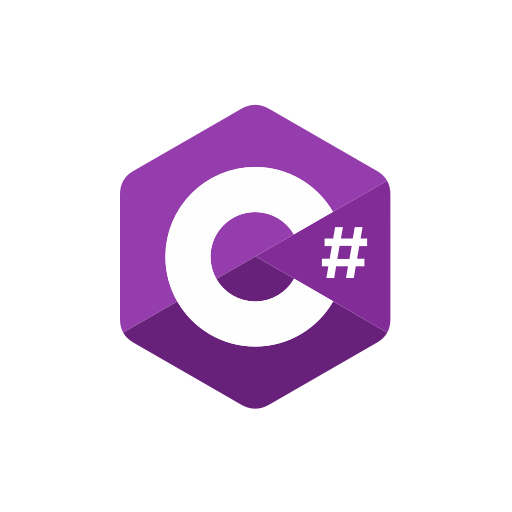SHARE
What is ASP.NET? An Overview in 2026

Contents
Contents
Introduction
In the world of web development, backend frameworks play an important role in building dynamic web pages and interactive web applications.
One such framework that has gained immense popularity is ASP.NET. In this article, we will explore ASP.NET, its core components, its uses, and the advantages and disadvantages it offers to web developers.
What is a Backend Web Framework?
Firstly, let’s define what a backend web framework is. A backend web framework is a software framework that allows developers to build server-side applications and APIs.
It provides a set of tools, libraries, and abstractions to handle tasks such as routing, database integration, session management, and authentication.
These frameworks help streamline the development process by offering pre-built components and reducing the need for writing repetitive code.

What is C#?
C# (pronounced C-sharp) is a powerful, modern, and object-oriented programming language developed by Microsoft.
It is the primary language used in ASP.NET development. C# is known for its strong typing, scalability, and extensive libraries, making it an ideal choice for building robust web applications.

What is ASP.NET?
ASP.NET, developed by Microsoft, is a web application framework built on top of the .NET platform.
It allows developers to build dynamic web pages, services, and applications by utilizing languages like C#.
ASP.NET provides a rich set of tools and libraries, making it easier to develop and deploy feature-rich web applications.
It supports various programming models, including Web Forms, MVC (Model-View-Controller), and Web API.
ASP.NET vs. ASP.NET Core
Now, let’s discuss the difference between ASP.NET and ASP.NET Core.
ASP.NET Core is the next generation of ASP.NET, specifically designed for building modern, cloud-based applications.
It is a cross-platform framework that runs on Windows, macOS, and Linux, enabling developers to build applications that are not tied to a specific operating system.
ASP.NET Core is modular and lightweight, offering enhanced performance and scalability compared to its predecessor.
It also provides improved support for modern web development practices and supports the latest versions of C#.
What is ASP.Net Used For?
ASP.NET is used for a wide range of web development tasks, including developing web applications for enterprises, e-commerce platforms, content management systems (CMS), customer relationship management (CRM) systems, and more.
It provides powerful features for data access, security, caching, and state management, making it suitable for building complex and secure applications.
Advantages of ASP.NET
Rich Ecosystem
Has a vast ecosystem with a wide range of libraries, frameworks, and tools available, making development efficient and productive.
Seamless Integration
Integrates seamlessly with other Microsoft technologies, such as Azure cloud services, SQL Server, and Visual Studio, providing a comprehensive development environment.
High-Performance and Scalability
Offers excellent performance and scalability, allowing applications to handle a large number of concurrent users and requests.
Strong Security Features
Provides built-in security features, such as authentication and authorization mechanisms, to protect applications from common web threats.
Rapid Development with Code Reusability
Promotes code reusability through its modular structure and extensive library support, enabling developers to build applications quickly.
Disadvantages of ASP.NET
Learning Curve
It has a steep learning curve, especially for developers who are new to the framework and the Microsoft ecosystem.
Windows Dependency (Prior to .NET Core)
Earlier versions of ASP.NET were primarily designed for Windows environments, limiting cross-platform compatibility.
Performance Overhead
Compared to lightweight frameworks, ASP.NET may have a higher performance overhead due to its extensive features and components.
Limited Community Support for .NET Core
Although ASP.NET Core is gaining popularity, it may have fewer resources and community support compared to other well-established frameworks.
Alternatives to ASP.NET
When it comes to web development, there are numerous options available for choosing the right tech stack. If you’re considering alternatives to ASP.NET, several popular frameworks stand out, each offering a unique programming language and ecosystem. This guide will delve into some noteworthy options, including Ruby on Rails, Django (Python), Laravel (PHP), and Express.js (JavaScript). By exploring these alternatives, you can cater to different developer preferences and project requirements, empowering you to make an informed decision for your web development endeavors.
Companies using .NET in 2024
Several notable companies rely on ASP.NET for their web development needs. Some of these companies include Microsoft, Stack Overflow, GoDaddy, Dell, T-Mobile, and many more.
ASP.NET has proven to be a reliable and trusted framework for building robust and scalable web applications across various industries.
Summary
In summary, ASP.NET is a powerful backend web framework built on top of the .NET platform. It leverages the C# programming language and offers a rich set of tools and libraries for building web pages or designing data-driven web applications.
With the introduction of ASP.NET Core, developers can enjoy cross-platform capabilities and enhanced performance.
While ASP.NET has a learning curve and may have some performance overhead, its extensive ecosystem, seamless integration with Microsoft technologies, and strong security features make it a popular choice for web development.
However, developers also have alternative frameworks to consider based on their preferences and project requirements.
Frequently Asked Questions
What is a Model View Controller (MVC) framework?
MVC is a design principle that separates an application into three main components – the model, the view, and the controller.
Each of these is built to handle specific aspects of an application. It is one of the most widely used standards used to create scalable projects.
The express purpose of programming using the MVC method is to separate data and business logic from the user interface.
Is ASP.NET good for building web apps?
ASP.NET is great for building websites and web apps. It harnesses the powerful and flexible Microsoft ecosystem that gives developers options with how they choose to code.
Is ASP.NET good for building apps for mobile devices?
ASP.NET is a powerful addition to a mobile app that can handle server-side components with ease. Client-side technologies like Twitter’s Bootstrap can be paired with ASP.NET to produce dynamic and responsive applications.
Are there a lot of ASP.NET developers?
The .NET community is large and active. There is often a high demand for .NET developers because .NET and C# are frequently used in enterprise-level applications.
Can you use ASP.NET as a backend framework?
The .NET framework comprises both frontend and backend languages. ASP.NET is used for backend work and C# and VB.NET are used for frontend development. But a wide range of other technologies are supported as well.
Comprehensive Web Development Services
Flatirons Development creates custom web development solutions tailored to your business needs.
Get the CEO's Take
Handpicked tech insights and trends from our CEO.
Comprehensive Web Development Services
Flatirons Development creates custom web development solutions tailored to your business needs.
Get the CEO's Take
Handpicked tech insights and trends from our CEO.

Secure Mobile App Development: Prioritizing Data Protection
Flatirons Development
Oct 22, 2025
What is Data Ingestion? Definition, Types, and Best Practices for Efficient Data Processing
Flatirons Development
Oct 16, 2025
Enterprise Computing: Transforming Business Operations
Flatirons Development
Oct 09, 2025
Explore the Top Embedded Systems Examples of Today
Flatirons Development
Oct 04, 2025
Best Manual Testing Tools to Boost Your Software Quality
Flatirons Development
Sep 28, 2025
Digital Product Development: Enhance Your Business Offerings
Flatirons Development
Sep 12, 2025
Secure Mobile App Development: Prioritizing Data Protection
Flatirons Development
Oct 22, 2025
What is Data Ingestion? Definition, Types, and Best Practices for Efficient Data Processing
Flatirons Development
Oct 16, 2025
Enterprise Computing: Transforming Business Operations
Flatirons Development
Oct 09, 2025
Secure Mobile App Development: Prioritizing Data Protection
Flatirons Development
Oct 22, 2025
What is Data Ingestion? Definition, Types, and Best Practices for Efficient Data Processing
Flatirons Development
Oct 16, 2025
Enterprise Computing: Transforming Business Operations
Flatirons Development
Oct 09, 2025
Secure Mobile App Development: Prioritizing Data Protection
Flatirons Development
Oct 22, 2025
What is Data Ingestion? Definition, Types, and Best Practices for Efficient Data Processing
Flatirons Development
Oct 16, 2025
Enterprise Computing: Transforming Business Operations
Flatirons Development
Oct 09, 2025